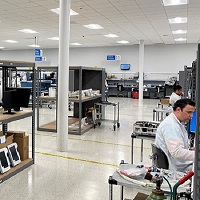
Quest Completes 2023 UN Global Compact Communication on Progress
The United Nations Global Compact is an agreement, signed by more than 15,000 businesses and 4,000 organizations, to uphold a set of principles that guide businesses to be a force for good in the world. Businesses are encouraged to behave responsibly by aligning their strategies and operations with Ten Principles on human rights, labor, environment, and anti-corruption. To maintain membership in the Global Compact, businesses must complete Communications on Progress, showing that they are taking the steps necessary to help meet the UN’s Sustainable Development Goals.
Quest International recently reaffirmed our commitment to the UN Global Compact by completing our Communication on Progress and reporting to the UN about our efforts in the areas of human rights, labor, environment, and anti-corruption.
The UN Global Compact believes that change starts from the top down, requiring member CEOs to sign a pledge to uphold the principles through their leadership. All the components of the Communication on Progress ask whether leadership has endorsed and publicly recognized programs that promote the UN principles. At Quest, our leadership takes that responsibility very seriously, and all our policies are the direct result of our leaders’ desire to use their business for good.
Here is a breakdown of each section of the Compact and what it means for Quest International. Quest’s policies in relation to the principles outlined by the compact are all spelled out in our Code of Ethics, which strictly governs all our operations.
Human Rights
The section on human rights asks companies to stand up for fair and equitable treatment of workers in dealings with potential customers and suppliers. The UN wants member organizations to ensure that all their partners treat employees fairly and do not engage in forced or child labor.
As part of Quest’s Employee Handbook, we have a policy in place that clearly states how our workers are to be treated and an affirmation of their rights as human beings. The handbook is shared with all employees, including contractors.
Labor
The labor portion of the questionnaire assesses how fairly the company treats its workers, and whether they are participating in equal opportunity hiring and promotional opportunity.
The UN Global Compact also wants to make sure employees have a safe space to work, and that Quest, as a member organization, is doing everything we can to minimize workplace accidents. The UN Global Compact asked about our incident rate at Quest, and we were happy to report that we had zero workplace injuries in the last year.
Environment
Quest is ISO 14001:2015 registered, which means that all of our operational policies take the environment into account. We monitor our water and energy usage, striving to lower our consumption year over year. We also practice proper waste management by recycling almost 20,000 pounds of e-waste annually.
The global compact asks whether environmental sustainability is built into our organizational structure and operations, and at Quest, it certainly is. Our environmental sustainability initiatives are governed by a leadership committee that holds our entire organization responsible for meeting our annual reduction goals.
Anti-Corruption
The final topic of the Compact is corruption, assessing what member organizations are doing to help prevent and combat it.
As part of our company code of ethics, Quest promises not to engage in activities where corruption is possible and encourages our suppliers and partners to do the same.
Join Us
The ultimate goal of the UN Global Compact is to provide a framework for businesses to become forces for good in the world, guidelines Quest is happy to follow.
MAR-005 REV 1.0











